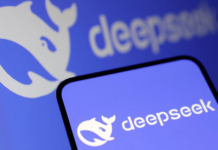Reasoning is like a tall monument in the vast field of artificial intelligence (AI); it points the way toward intelligent machines that can comprehend human behaviour instead of just mimicking it. The maze of probability, logic, and inference that characterizes human intellect, however, is difficult for these AIs to traverse.
Investigating the algorithms behind AI’s probabilistic, inductive, and deductive reasoning in greater detail holds the key to revolutionary developments in any sector of the economy.
Deductive Reasoning:
Envision Sherlock Holmes methodically assembling hints, with every observation bringing him one step closer to the truth. In AI, this is the fundamental idea of deductive reasoning. Algorithms like SAT solvers effectively traverse difficult logical issues by applying established rules and facts, guaranteeing faultless performance in applications like route optimization and defect identification.
So, it is suggested to use complex route planning algorithms to ensure on-time delivery and improved logistics through the use of deductive AI in its supply chain management systems.
Inductive Reasoning:

Imagine a scientist now making sense of patterns in a vast amount of data and developing a hypothesis based on observations. This is the area of AI that uses inductive reasoning. This is something that machine learning algorithms are quite good at; they can identify patterns in large datasets and create generalisations. Inductive reasoning inspires innovation across a wide range of industries, from Netflix suggesting films you’ll enjoy to fraud detection systems seeing irregularities in bank transactions.
So, it is suggested to use state-of-the-art natural language processing algorithms to forecast market trends and assess customer sentiment, giving organizations useful information.
Probabilistic Reasoning:
Lastly, picture a weatherman estimating the chance of rain while accounting for wind speed, humidity, and a host of other factors. This probabilistic method mimics the way AI deals with uncertainty. In situations where complete certainty is elusive, Bayesian networks and Markov Chain Monte Carlo algorithms help decision-makers make well-informed choices by assigning probability to potential outcomes. Probabilistic reasoning in AI is influencing risk management and decision-making in a variety of industries, from autonomous car navigation to medical diagnosis systems.
However, these particular strategies are not the only ones being used in the effort to realize AI reasoning’s full potential. The future of reasoning lies in the smooth integration of these various modes to create hybrid systems that can solve even the most complex real-world problems. The options are virtually endless as research advances forge new avenues, such as merging deep learning architectures with probabilistic frameworks or investigating reasoning models inspired by neurons.
A customized strategy is needed to successfully leverage these reasoning mechanisms in your company.
So, it is suggestible to combine your knowledge of software development, AI, and machine learning to assist you in creating and implementing unique solutions that take advantage of the advantages of each kind of reasoning.
You should choose a perfect AI reasoning partner who would help you simplify logistics, automate processes, or make data-driven decisions while navigating the intricacies of an ever-changing environment.






